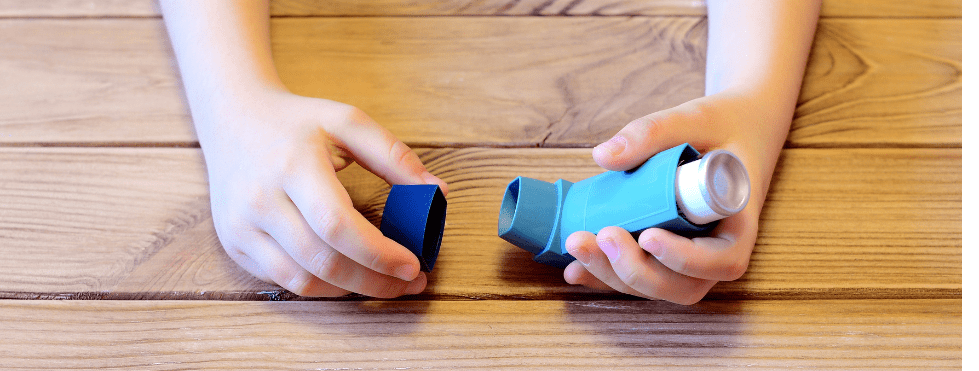

Half as many children in the United States were diagnosed with asthma in the first year of the COVID-19 pandemic compared to previous years, and Rutgers researchers think fewer colds may be part of the reason.
In a new Rutgers study, published in Respiratory Research, researchers examined the rates of new asthma diagnoses in a large commercial insurance claims database during the first year of the pandemic compared with rates of new diagnoses during the previous three years.
Using the Health Core Integrated Research Database, researchers identified individuals under 18 years old with no prior diagnosis of asthma and compared rates of new diagnoses from 2020 with rates during the previous three years. They found that diagnosis rates of asthma decreased by 52 percent across the first year of the pandemic compared with results from previous years.
“Given the similar findings from Japan and the U.S., these results suggest that the pandemic caused many fewer children to develop asthma in various places around the world, at least early on,” said Daniel Horton, a core faculty member at the Center for Pharmacoepidemiology and Treatment Science at Rutgers Institute for Health, Health Care Policy and Aging Research (IFH) and the lead author of the study.
According to the Asthma and Allergy Foundation of America, citing data from the National Center for Health Statistics, about 4.8 million children have asthma in the U.S. with symptoms including trouble breathing, wheezing, coughing and tightness or pain in the chest. While a number of research studies have shown declines in the worsening of pediatric asthma during the pandemic, there has been much less focus on the rate of new asthma diagnoses during the pandemic. Building on a study from Japan, researchers at Rutgers Biomedical and Health Sciences sought to study rates of diagnosis in the U.S.
According to researchers, while more needs to be learned about why new asthma diagnoses fell so substantially, masking and keeping children separated during the pandemic may be the reason.
“We think this may have occurred in part because, earlier in the pandemic, children were separated, wearing masks and getting fewer regular colds that could trigger asthma,” said Horton, who is an assistant professor of pediatrics at Rutgers Robert Wood Johnson Medical School and an assistant professor of epidemiology at Rutgers School of Public Health. “No one wants to keep children out of school or separated, but having kids wear masks while they have a cold or the flu might be a way to keep other kids who are at risk for developing asthma a little safer.”
Coauthors of the study include Brian Strom, the chancellor of Rutgers Biomedical and Health Sciences; Stephen Crystal and Cecilia Huang of IFH; Reynold Panettieri of Rutgers Institute for Translational Medicine and Science; and collaborators from Carelon Research.